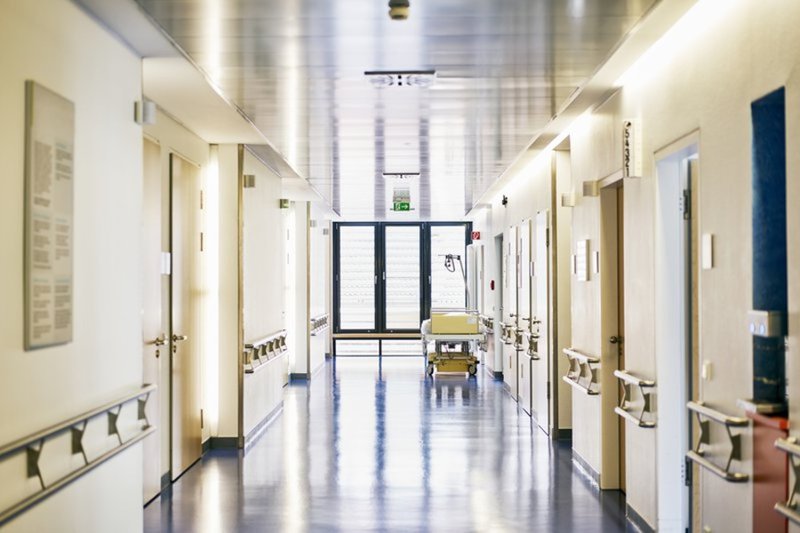News
“We’re Not Safe”: Violence at Hospitals Sparks Fear, Protests, and a Cry for Protection

Rural healthcare workers feel abandoned as violent crime reaches hospital gates
South Africa’s healthcare workers are no strangers to pressure — long hours, underfunded clinics, and staff shortages are part of the job. But now, a chilling new threat is pushing many to breaking point: personal safety.
At the heart of this crisis is Barberton District Hospital in Mpumalanga, where terrified medical staff downed tools this week and gathered at the gates in protest. Their message was chillingly simple: “We won’t work until it’s safe.”
Their fears are rooted in a real and recent nightmare. In the early hours of 1 June, armed criminals infiltrated the hospital, threatening doctors and nurses. This wasn’t a random act — it came during a vulnerable moment when the hospital was switching security companies. The lapse in protection provided an opportunity for a brutal reminder of just how exposed healthcare facilities can be.
“This is not a strike,” said Mandla Matshabe from the SA Medical Association Trade Union. “This is self-preservation. Our members want to work, but not at the cost of their lives.”
“No guards, no guns, no help”
Sadly, Barberton isn’t alone. In Gqeberha, security guards were robbed at gunpoint at Livingstone Hospital. In Limpopo, nurses have reported being raped and harassed in rural clinics with no proper fencing, no floodlights — and crucially, no armed security.
“Our securities are not armed. That needs to change,” said Cyril Mdluli of the Democratic Nursing Organisation of South Africa (DENOSA). “Mpumalanga is the only province where security matters are handled by the Department of Community Safety — not Health. That must be reviewed.”
Mdluli and others are calling for insourcing of security personnel under the health department. According to them, relying on outsourced security, especially during contract transitions, creates gaps that criminals exploit — often violently.
“It’s not just about fences”
The tragedy is that many of these attacks are happening where healthcare is already stretched thin: rural and township clinics, far from urban reinforcements. Nurses posted alone at night in sparsely staffed facilities are easy targets — and increasingly, they know it.
“It’s painful,” said a Limpopo nurse who asked not to be named. “We’re expected to care for the sick, but who takes care of us?”
Recent months have brought a disturbing list of casualties:
-
A nurse raped while on duty in Limpopo.
-
A nurse shot dead at Tembisa Hospital.
-
A rise in assaults, robberies, and harassment in provinces like Vhembe and Gert Sibande.
A broken promise of care
At its core, this isn’t just a security issue, it’s a betrayal of the people we trust to heal us. South Africa’s healthcare system, already battered by budget constraints and staffing shortages, now risks losing its frontline workers to fear and trauma.
“We need a clear programme of action,” said DENOSA president Simon Hlungwani. “Healthcare workers are under siege, and this is becoming a national emergency.”
He’s right. And the public seems to agree. Social media this week has lit up with messages of solidarity under hashtags like #ProtectOurNurses and #SafeHospitalsNow, as South Africans share horror stories and demand answers from provincial departments.
But so far, response has been tepid. The Mpumalanga Department of Health declined to comment, and Dumisani Malamule, the official spokesperson, remained tight-lipped. That silence is now louder than ever — and it’s echoing through the empty wards of hospitals where staff are too afraid to return.
What needs to happen next?
It’s not rocket science. Secure the hospitals. Arm the guards. Light the clinics. Protect the staff. If the state can deploy security for stadiums and parliaments, surely it can do the same for a nurse working alone at 2 a.m. in a rural village.
This is not a moment for bureaucracy or blame-shifting. It’s a moment to listen to the people on the ground — the nurses, doctors, and paramedics who still show up every day, even when their lives are on the line.
The question South Africa must now ask itself: What will it take before we act? Another rape? Another murder? Or can we finally say enough is enough?
If you’ve ever had a loved one saved by a nurse or doctor, now is the time to stand with them. Not just with words, but with action.
Because in a country battling so much, we simply cannot afford to lose the people trying to keep us alive.
{Source: The Citizen}
Follow Joburg ETC on Facebook, Twitter , TikTok and Instagram
For more News in Johannesburg, visit joburgetc.com



























